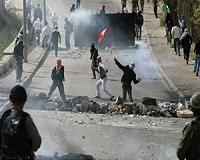| . |  |
. |
Tel Aviv, Israel (UPI) Dec 28, 2010 Israel may have refused U.S. President Barack Obama's request to freeze settlements construction in the occupied West Bank but it is still pushing him to free Jonathan Jay Pollard, Israel's most notorious spy. Pollard, a U.S. Navy analyst, is serving a life sentence in a North Carolina prison for plundering key U.S. military secrets in the 1980s as an agent of Israel's intelligence establishment. Israeli Prime Minister Binyamin Netanyahu is expected to officially and publicly appeal to Obama soon to release Pollard, 56, whose spying caused a severe rift between Israel and the United States, following his arrest Nov. 22, 1985. He was convicted in 1987. Netanyahu has long championed the Israeli effort to secure Pollard's freedom, which has been a source of constant friction between Israel and its strategic ally. For years, Israeli governments denied Pollard, an American Jew and U.S. citizen, was one of their agents. But in 1995 he was given Israeli citizenship and Netanyahu has said that freeing him would help secure support for concessions in peace talks with the Palestinians. But U.S. officials say that even with Netanyahu's imprimatur on the Pollard case, it is highly unlikely the spy will be released, in part because of continued Israeli espionage in the United States. Pollard, who had top-secret clearance in the Navy, caused immense damage to the United States. He provided Israel's Bureau of Scientific Relations, known by the Hebrew acronym Lakam, with some 800,000 pages of classified intelligence material over 18 months in 1984-85. Lakam was a highly secret intelligence branch run by the Israeli prime minister's office. Initially created to help Israel's secret nuclear program, it became in the words of Yossi Melman, an Israeli intelligence specialist, a "theft contractor" for Israel's security industry. Lakam was supposedly disbanded after the Pollard scandal but it is widely believed the agency continues to function under another name. Pollard's betrayal still rankles with many intelligence people in Washington and the establishment remains adamantly opposed to his release. The damage he inflicted on U.S. national security was so profound that top-level figures in the U.S. intelligence establishment threatened to resign if the government buckles to Israeli pressure to pardon Pollard. That has built of late. In 2008, U.S. President George W. Bush and Israeli Prime Minister Ehud Olmert discussed the case. "I think that sets back Pollard again," Bruce Riedel, a former CIA officer who was on the White House's National Security Council until 2002, said at the time. "It reopens the issue in the public arena, highlighting that Pollard was not a rogue or exceptional case but rather part of a concentrated and organized Israeli espionage campaign against the American military and intelligence communities." Both sides know that the other operates agents in each other's countries but many in the U.S. intelligence community complain that Israel's espionage effort in the United States is far greater than American operations in the Jewish state. Another former CIA officer, Philip Giraldi, says that in the late 1990s FBI Deputy Director David Szady was so dismayed at the scale of Israeli spying in America he told the chief of Israel's Mossad intelligence service in Washington to "knock it off." That clearly didn't happen even though after Pollard's arrest Israel assured Washington it wouldn't again spy on the United States. However, several suspected Israeli spies have been arrested since then. One was Ben-Ami Kadish, an 84-year-old Jewish engineer who in April 2008 was charged with espionage in 1979-85. His indictment gave weight to long-held U.S. suspicions that Pollard hadn't acted alone and that an Israeli spy network remained active in Washington. Kadish was uncovered through intercepted telephone conversations with an Israeli agent known only as Yossi Yagur. Giraldi says the FBI uncovered Yagur's unlisted telephone number and address in Israel "and was able to obtain corroborating information on the case by tapping the phone." Yagur, identified in court papers as "CC-1" -- co-conspirator 1 -- had been Pollard's case officer and operated under diplomatic cover as science adviser to the Israeli consulate-general in New York in 1980-85. In fact he was a senior official in Lakam.
Share This Article With Planet Earth
Related Links
 Israelis split over ban on renting to Arabs: poll
Israelis split over ban on renting to Arabs: pollJerusalem (AFP) Dec 28, 2010 Israeli Jews are divided over a call by rabbis for Jews to avoid renting or selling property to non-Jews, with 44 percent in favour, and 48 percent opposed, a new poll showed Tuesday. The survey, jointly conducted by Israeli and Palestinian pollsters, also revealed widespread pessimism about the chances that a Palestinian state will be created in the next five years. And it showed a majo ... read more |
|
| The content herein, unless otherwise known to be public domain, are Copyright 1995-2010 - SpaceDaily. AFP and UPI Wire Stories are copyright Agence France-Presse and United Press International. ESA Portal Reports are copyright European Space Agency. All NASA sourced material is public domain. Additional copyrights may apply in whole or part to other bona fide parties. Advertising does not imply endorsement,agreement or approval of any opinions, statements or information provided by SpaceDaily on any Web page published or hosted by SpaceDaily. Privacy Statement |